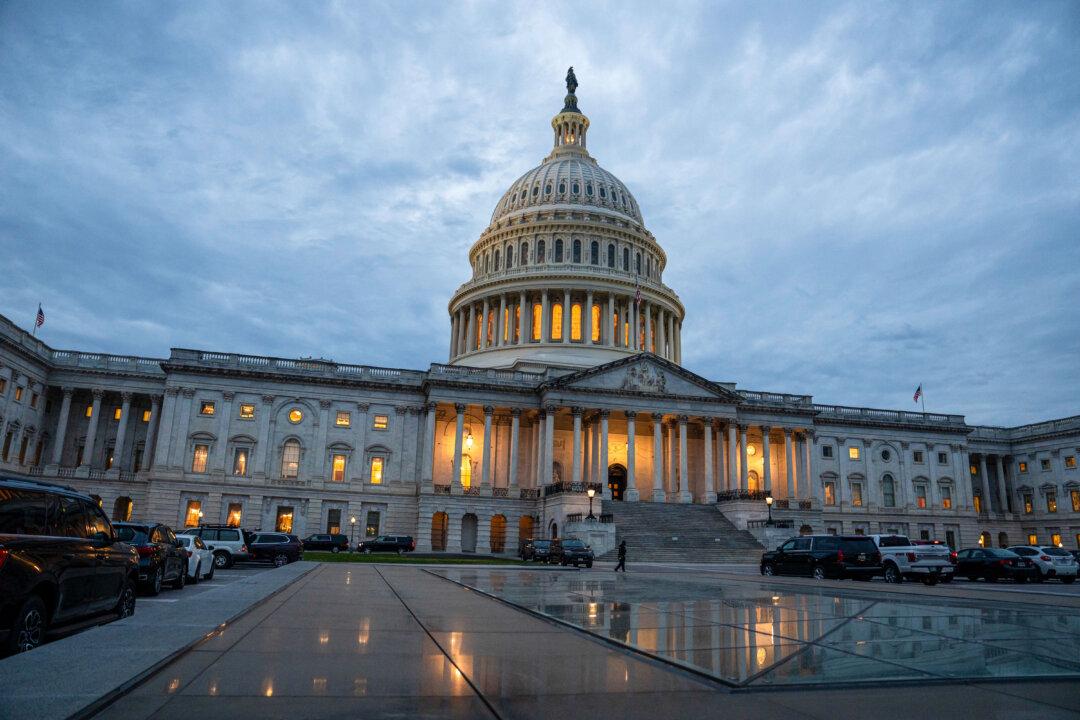A federal judge ruled on Monday that a new lithium mine in Nevada could proceed, despite a lawsuit challenging the new mining project.
Judge Miranda Du of the Nevada Federal District
ruled that the Canada-based Lithium Americas Corp. mining company could retain its mining permits for the Thacker Pass project over the objections of environmental groups, Native American tribal groups, and some ranchers that opposed the project. Du did, however, rule that the U.S. Bureau of Land Management (BLM) would need to revisit part of its environmental review for the mining project’s plan to dump waste rock over a 1,300-acre area.
Thacker Pass has the nation’s largest known deposit of lithium, a rare metal widely used in rechargeable batteries.
The plaintiffs in the lawsuit raised concerns the new mine would harm the local wildlife, degrade groundwater, and pollute the air.
Du ruled that the defendants had demonstrated the project does not violate any federal or state air or water quality standards. She also found that the plaintiff’s claims that the project would harm local species of sage grouse birds were insufficient, and the bird species is not federally classified as endangered or threatened.
Paiute Native American plaintiffs had argued they should have been more closely involved in approving the mining project and said the project could destroy nearby sacred sites. Du determined that the area covered by the mining project did not overlap with a 2006 ethnographic assessment that cataloged various sacred sites and locations of massacres in the surrounding area.
Lithium
President Joe Biden’s administration has raised lithium production as a key component of their effort to spur broader adoption of electric vehicles.“Lithium is a critical input to batteries where the United States currently has very little domestic supply,” the Biden White House said in a December 2021
fact sheet. “The Biden Administration has funded two dozen teams to expand sourcing of lithium from geothermal brines and approved a permit for the Nevada-based Thacker Pass lithium mine.”
In addition to making batteries for consumer electric vehicles, lithium holds a growing strategic importance as the military is moving to adopt more electric vehicles.
The Department of Defense (DoD) has recently highlighted the strategic importance of lithium and China’s current dominance over the supply.
“By far the largest challenge for securing the supply of lithium batteries for DoD is the power of China’s industrial base,” a February 2022 DoD
report reads. “China dominates the global advanced battery supply chain, including lithium hydroxide (94 percent), cells (76 percent), electrolyte (76 percent), lithium carbonate (70 percent), anodes (65 percent), and cathodes (53 percent).”
Republicans have also raised the strategic importance of lithium, while raising concerns about China’s potential involvement in the Thacker Pass project. In September, Sen. Tom Cotton (R-Ark.)
raised concerns about Lithium Americas’ largest shareholder, Ganfeng, a Chinese company with direct ties to the ruling Chinese Communist Party.
Reactions to the Ruling
Lithium Americas celebrated the Monday ruling, describing it as largely favorable to their mining project.
“We are pleased that the Federal Court has recognized the BLM’s decision to issue the Federal Permit, reflecting our considerable efforts to ensure Thacker Pass is developed responsibly and for the benefit of all stakeholders,” Lithium Americas president and CEO Jonathan Evans said in a Tuesday press
statement. “The favorable ruling leaves in place the final regulatory approval needed in moving Thacker Pass into construction.”
Lithium Americas said the ruling left “no impediment to commencing construction” on the mine.
As for Du’s order for BLM to reevaluate the mining project’s proposed waste rock dumping permits, Lithium America said it will “work closely with the BLM to complete the required follow-up.”
Some of the environmental groups that sued to stop the mining project
touted Du’s ruling that the BLM was “arbitrary and capricious” in approving the mining project’s request to dump waste rock. At the same time, the environmental groups said they are examining their options for challenging the mine going forward.
“We don’t know yet what the next steps will be, but we know we won’t stop fighting this destructive mine,” said Greta Anderson, deputy director of Western Watersheds Project.
The People of Red Mountain, a Native American tribal organization, said “our hearts are heavy“ after hearing the judge’s decision. ”Indigenous people’s sacred sites should not be at the expense of the climate crisis the US faces.”
The Associated Press contributed to this article.





